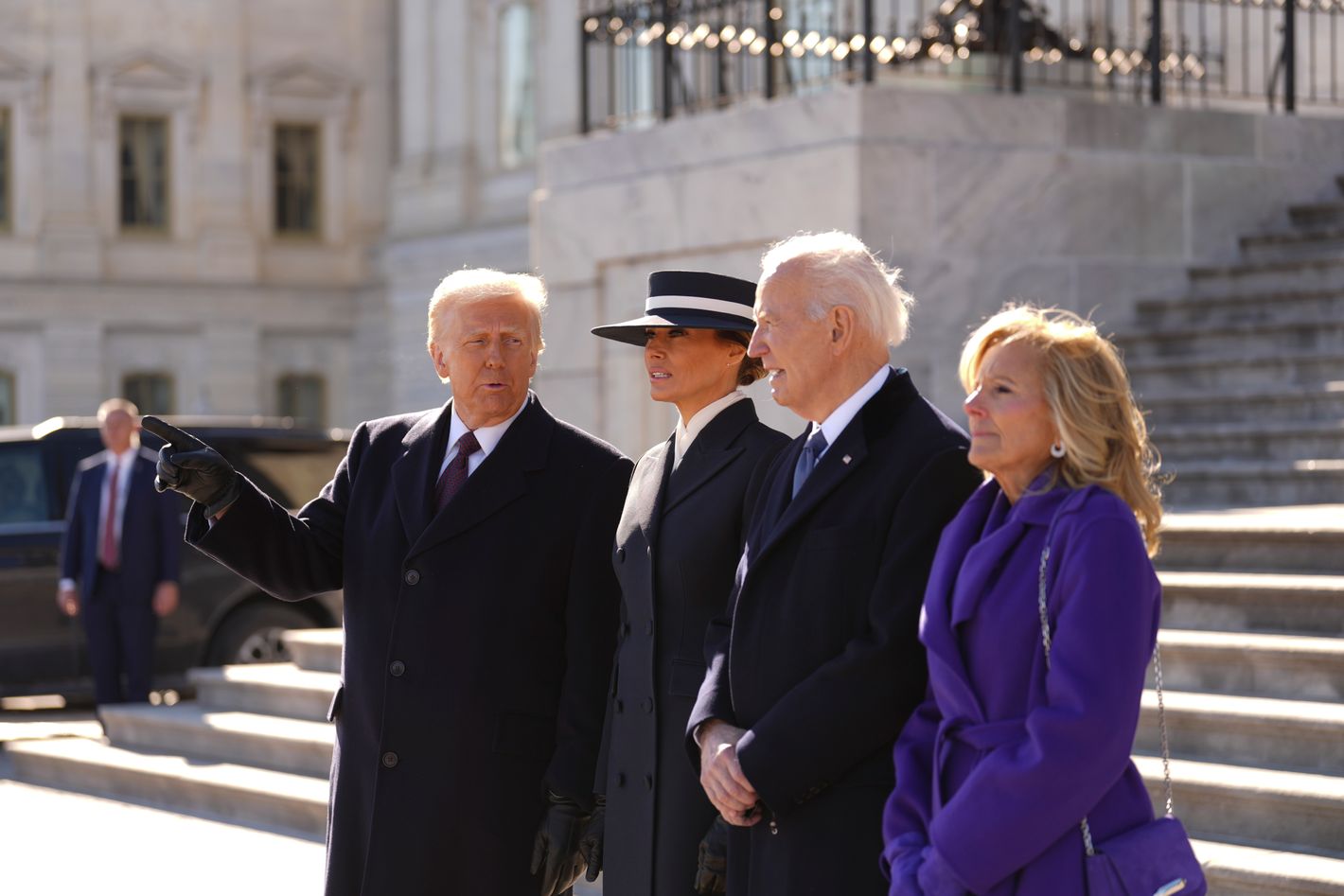Photo: Doug Mills/The New York Times/Redux
Donald Trump likes to think of himself as a “disrupter,” even though he’s the close friend of the wealthiest and most powerful people in the world, and has now himself taken power over the executive branch of the federal government even as his allies dominate the legislative and judicial branches.
But in the sense of a radical break with the immediate past, there’s not much question the era he inaugurated today will represent one of the most disruptive in U.S. history. He’s in the process of signing what will probably be a record number of executive orders, mostly reversing Biden administration rules and regulations or shattering other precedents. Other big changes in national policy (such as the most massive tariffs since the 1930) that will likely be imposed by presidential edicts are waiting in the wings. The legislative package congressional Republicans are preparing will likely include the sharpest cuts in federal domestic spending, especially programs benefiting the poor and the medically needy, since the 1960s. Through both presidential and congressional actions, the new regime will wage the most intensive war on the civil service system since the Gilded Age. And while his America First foreign policy remains a bit murky, the odds are high that the next four years will involve a final pivot away from the system of alliances and national security arrangements that the United States painstakingly built up over many decades following World War II. And that doesn’t even get into the turning back of many clocks on equal rights for women, LGBTQ folk, and racial minorities.
Yes, a lot of these policies were foreshadowed and some were pursued by the first Trump administration. But from Project 2025 to the Trump’s audacious Cabinet nominees to the incredibly unbridled rhetoric of his campaign and the recent transition, this really does look like a much more systematic assault on late-20th and early-21st century American principles than Trump 1.0. And in fact, it’s hard to find any other precedent to match it in terms of the overturning of previously sacred tablets.
There have certainly been some big sudden shifts in national policy since the country’s founding. Thomas Jefferson’s election in 1800 brought echoes of the French Revolution and constituted firm rejection of the wealthy coastal interests that governed the early United States. In 1828 Andrew Jackson very self-consciously led an assault on the prerogatives of unelected and highly educated elites. Abraham Lincoln’s election quite literally triggered a bloody civil war, though his actual policies were gradualist and arguably represented a preemptive coup against a slave-state scheme to extend and expand human bondage across the country. Grover Cleveland and Benjamin Harrison swapped power back and forth just as Trump and Joe Biden have done. But the narrow band of policies separating the Democrats and Republicans of their era seems minor today.
Certainly FDR and his New Deal overthrew decades of conservative Republican rule in addressing the emergency of the Great Depression. But after a frenzied beginning Roosevelt began to move more slowly during his second term, and never had the nerve to challenge the racist policies of his party’s southern power base. Jim Crow finally succumbed to a sustained judicial, legislative, and executive assault by the mid-1960s, but precisely because the movement for civil rights was largely bipartisan and unfolded over such a long time, it felt more like an evolution than a revolution, at least at the national level. Similarly a whole new area of constitutional rights was recognized overnight in the Supreme Court’s 1973 Roe v. Wade decision. But these rights were slowly and steadily eroded over decades until they were abandoned at Trump’s connivance in 2022 by the Court he shaped.
In their own ways Ronald Reagan, Bill Clinton, George W. Bush, and Barack Obama steered the country in a different direction than its trajectory before they took office. But no one equals Trump is seeking to reverse so many years of bipartisan policies and practices, from internationalism in national security and global economics to environmental protection to slow but steady progress in the spread of human equality. This second time, in particular, Trump is taking office glorying in the complete revocation of federal diversity policies, celebrating the abandonment of traditional international alliances, gleefully embracing a return to the nativist immigration legacy of the 1920s, and joyfully promoting the renewed supremacy of fossil fuels. He has, moreover, assembled a cult of personality more militant than any American president dating back at least to his role model Andrew Jackson, eager to accept whatever versions of reality he projects and certain that his enemies are traitors, if not actual demons. Combined with the actual power his narrow electoral victories have won, and his professions of a unique, world-historical mandate with no limits, he is poised to change the United States profoundly.
It’s always possible he and his MAGA allies will fail or miscalculate, or lose some of their power in the 2026 midterms. But for now, the 47th president see vistas of unprecedented power and no real obstacles to his radical designs. And one of his most significant sources of power is the difficulty the rest of us, particularly in the news media, will have coping with the whiplash we experience regularly when Trump goes one step beyond anything we thought possible.

